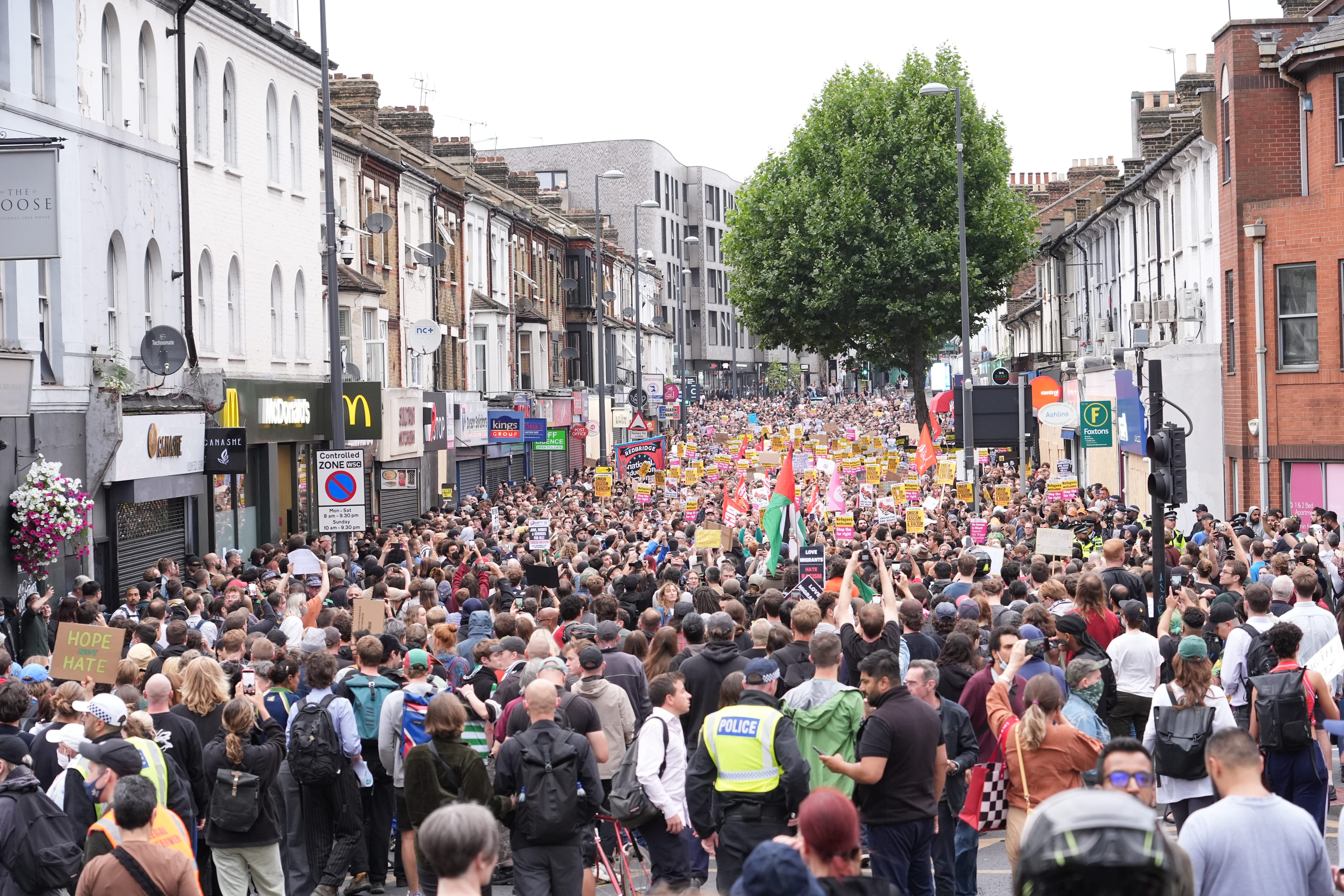Former Government adviser calls for different tone in politics in wake of riots
Ted Cantle’s 2001 report on social cohesion called for a national debate on a shared British identity.

A community relations expert has hit out at the “cynical way” politicians have targeted voters by normalising identity politics, as he stressed the “urgent” need for a social cohesion strategy.
Former Government adviser Ted Cantle warned against shutting down debate, which he said has “created frustration and belief (among some) that there is a hidden agenda”.
Mr Cantle, an expert on community cohesion and intercultural relations, said successive political administrations have taken only “short-term and limited measures” to tackle issues around integration.
He said there is no need to commission “yet another review”, pointing to the multiple reviews carried out, including his own in 2001, and the most recent by Dame Sara Khan, which was presented to the Conservative government earlier this year.
His Cantle report, following disturbances in summer 2001 in a number of northern towns and cities, called for a national debate on a shared British identity, having found a “depth of polarisation in our towns and cities”, meaning “many communities operate on the basis of a series of parallel lives”.
More than two decades on, in March this year, Dame Sara Khan criticised a lack of strategy to deal with threats to social cohesion and the country’s democratic resilience.
Our party political system is out of touch with the whole population and this leads to frustration and anger - the feeling grievances are not being listened to. So in that sense, it is more likely that frustration and anger could boil over
She said her review had followed a “twenty-year long line of government commissioned cohesion reviews and recommendations”, yet she expressed her disappointment “that today there exists no strategic approach, or comprehensive analytical capability and framework to assess social cohesion trends and to ensure a robust and resilient response in the face of evolving risks”.
Asked about the need for a strategy, Mr Cantle told the PA news agency: “Clearly this is urgent, but should not just be related to the present events.”
He said it must be recognised that “prejudice and discrimination is not limited to one community – and nor is hate speech and abuse”.
He said tension monitoring and early intervention by local government, police and schools had been important in assessing potential differences and disputes in local communities but that Government had “allowed this to lapse 10 years ago”.
He called for the Government to set out plans for additional housing, health and other public services “to recognise additional pressures from increased population”, saying a lack of new investment as the country’s population has risen “has disadvantaged poorer communities most of all”.
He added: “Migrants are then blamed, but the responsibility lays with government who have failed to cater for a growing population.”
We tend to react to one shock event and then say 'we should do more', but actually forget to sustain the effort. If we don't roll our sleeves up and do more we won't have more resilience against the next shock event
Social activist and celebrity photographer Misan Harriman said the recent disorder had begun “not with violence, but with words” spoken by politicians, as he claimed language used by parliamentarians had “normalised racism for too long”.
Mr Cantle said while he did not agree that politicians had normalised racism, he believed they have “developed and normalised identity politics”.
He added: “The cynical way they target core voters and run campaigns with separate identity messages is part of this.
“Our party political system is out of touch with the whole population and this leads to frustration and anger – the feeling grievances are not being listened to. So in that sense, it is more likely that frustration and anger could boil over.”
He called for a “different tone of politics” with politicians showing they can work together “and thereby role model how communities should also behave”.
Mr Cantle said there is a need for “real debate and taking grievances seriously”, adding that “shutting down debate has created frustration and belief that there is a hidden agenda”.
Government must actively counter misinformation rather than refusing to hear it, he added.
Dame Sara, writing in The Observer, said the Government should consider her recommendations from earlier this year but also “commit to a review into the riots to help understand the causes and provide answers to questions including why some towns and cities did not erupt in riots or violence while others did”.
Sunder Katwala, director of the British Future think tank, said “some form of rapid inquiry process would be good” to look at why the latest disorder had erupted, but noted the various reviews that have already taken place over the years and how “we talk about the importance of social cohesion, inclusion, integration, after shock events”.
He told PA: “We tend to react to one shock event and then say ‘we should do more’, but actually forget to sustain the effort.
“If we don’t roll our sleeves up and do more to build resilience for connected communities, then we won’t have more resilience against the next shock event, whatever direction it comes from.”
But Mr Cantle said: “We do not need yet another review, especially as the last one by Dame Sara Khan was presented earlier this year, with no response, again, by the Conservatives.”
A spokesperson for the Ministry of Housing, Communities and Local Government said: “All forms of religious and racial hatred have absolutely no place in our society, and since the violent disorder ministers have visited affected areas and met community and faith leaders to hear from them directly.
“To tackle these problems long term, this new Government has committed to delivering an integrated approach to social cohesion and will set out further details in due course.”
Bookmark popover
Removed from bookmarks